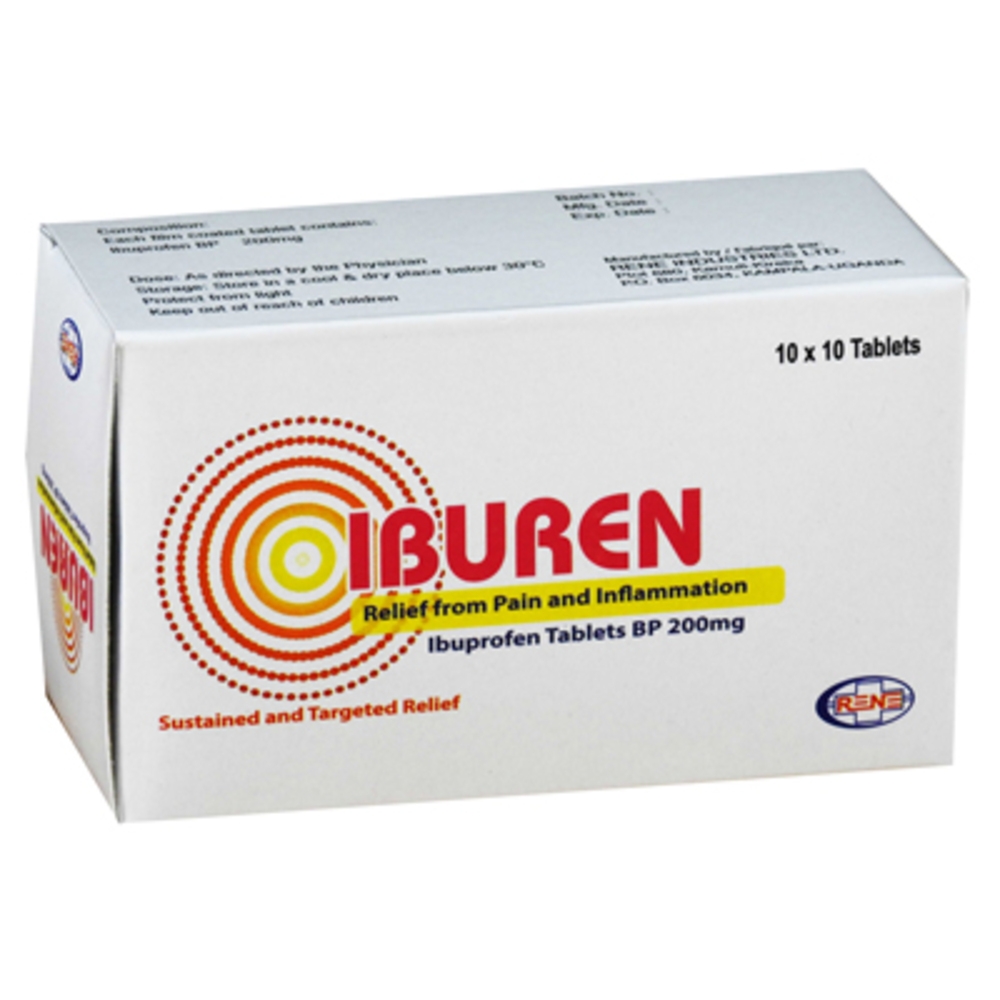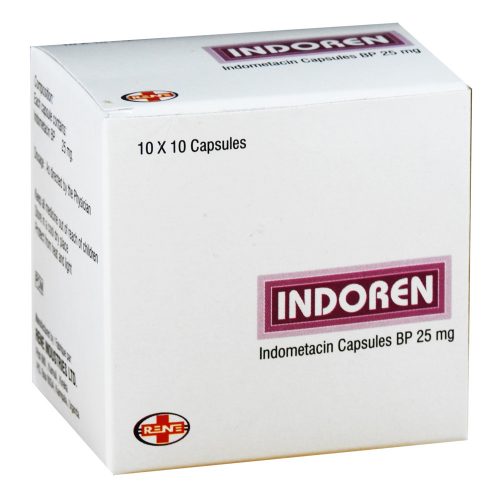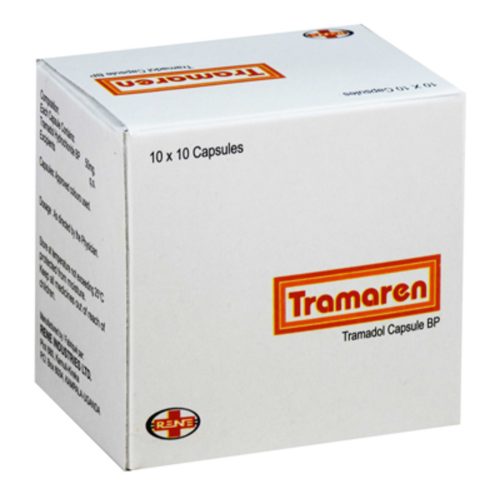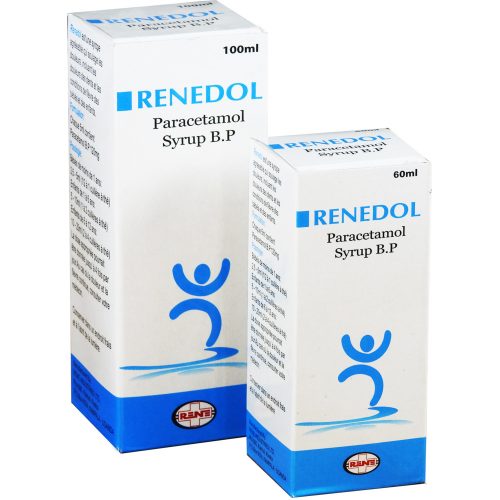IBUREN
Ibuprofen is a Non-steroidal Anti-inflammatory Drug (NSAID) that is used for the management of mild to moderate pain, fever, and inflammation. Ibuprofen works by blocking the production of prostaglandins, substances that the body releases in response to illness and injury. Prostaglandins cause pain and swelling, or inflammation.
Presentation
Blister pack of 10 x 10 Tablets
Description
Indications
As analgesic and anti-inflammatory in the treatment of rheumatoid arthritis (including juvenile heumatoid arthritis or Still’s Disease), ankylosing spondylitis, osteoarthritis and non-rheumatoid (seronegative) orthopathies
Pharmacological class
Non-steroidal Anti-inflammatory Drug (NSAID)
Pharmacological properties
Analgesia
Mechanism of Action
Ibuprofen works by blocking the production of prostaglandins, substances that the body releases in response to illness and injury. Prostaglandins cause pain and swelling, or inflammation.
Side effects
Gastrointestinal disturbances such as nausea, vomiting, diarrhoea, dyspepsia, abdominal pain, melaena, haematemesis, vertigo, ulcerative stomatitis, and gastrointestinal haemorrhage and hypersensitive reactions
Contraindications
Ibuprofen should not be given to patients with a history of an active, peptic ulceration. It is contraindicated in patients who have previously shown hypersensitivity reactions (asthma, rhinitis and urticaria) in response to ibuprofen, aspirin or other NSAIDs.
Drug interactions
Ibuprofen interacts with hundreds of drugs, including; blood thinners like Arixtra, Coumadin (warfarin), Heparin, Antidepressants including Celexa (citalopram), Paxil (paroxetine), and Lexapro (escitalopram), Beta blockers like sectral (acebutolol), Zebeta (bisoprolol), Tenormin . Drinking alcohol while taking ibuprofen can increase the risk of stomach bleeds and may even cause damage to your kidneys.





